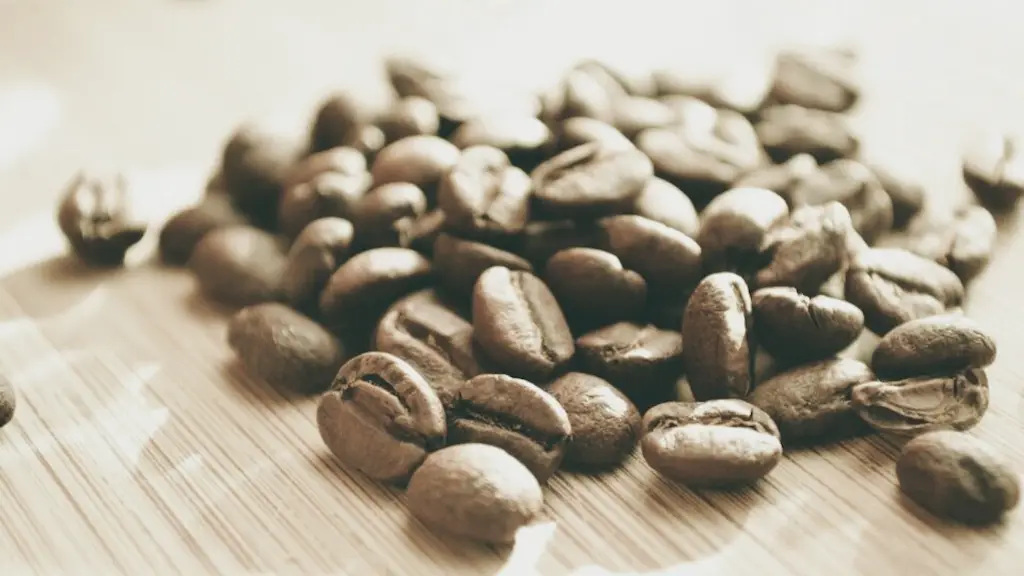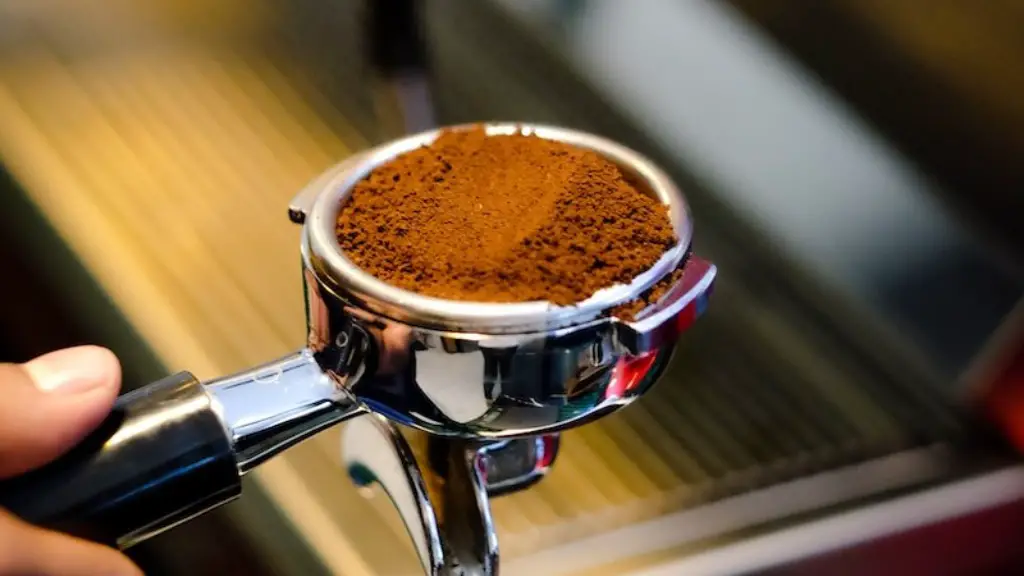Black coffee is one of the most popular beverages in the world and it can provide us with an energy boost in the morning or as a mid-day pick-me-up. It also has several health benefits, including improved focus and concentration. But can you drink black coffee when fasting for a blood test? This is a question that many people have.
The answer is that it depends on the type of test you’re having and the instructions provided by the laboratory. Generally speaking, it is best to avoid drinking any type of beverage during a blood test that requires fasting, as it can affect the accuracy of the test results. That includes black coffee. However, there is some evidence to suggest that black coffee can be consumed while fasting for certain types of tests.
For example, some medical laboratories may allow patients to drink black coffee while fasting for common tests such as a cholesterol test, as it contains very few calories and minimal amounts of caffeine. However, it is never recommended to consume any form of beverage without consulting your doctor or the laboratory first. The same applies to other types of tests, such as liver function tests, which may require a stricter fasting period.
Before drinking black coffee when fasting for a blood test, it is important to consider a few things. Firstly, it is important to be aware of potential side effects that can occur from drinking coffee, such as increased heart rate, jitters, and dehydration. Additionally, it is important to consider that caffeine can interfere with the accuracy of certain tests, such as blood sugar levels.
Experts also suggest that, depending on the type of test, it may be best to avoid drinking black coffee on the day of the test and instead drink it prior to the test. For example, with certain hormonal tests, the caffeine and other compounds in coffee may interfere with the accuracy of the test results. Therefore, it is best to avoid drinking black coffee at all while fasting for any type of blood test.
In conclusion, while drinking black coffee during a blood test that requires fasting is not recommended, there may be certain circumstances where it can be allowed. However, it is always best to check with your doctor or the laboratory before consuming any form of beverage. Although there are potential health benefits to drinking black coffee, it is important to keep in mind that it can also interfere with the accuracy of test results.
Caffeine Content Of Black Coffee
One of the primary concerns when drinking black coffee while fasting for a blood test is the caffeine content. Caffeine is an excitatory chemical that can interrupt the process of the test, potentially leading to inaccurate results. The amount of caffeine in black coffee can vary depending on the type of coffee beans used as well as the brewing method.
Generally, most types of black coffee contain between 95-165 milligrams of caffeine per cup (240 mL), while some specialty drinks may contain up to 200 milligrams. Therefore, it is important to check the label of the coffee and be mindful of your caffeine intake while fasting, as even a small amount of caffeine could lead to inaccurate test results.
Additionally, some forms of coffee, such as instant coffee, contain less caffeine than freshly brewed coffee. Therefore, if you are fasting for a blood test, it may be beneficial to opt for a decaffeinated version of coffee to avoid the potential effects of caffeine on the test results.
In any case, it is always best to check with your doctor or the laboratory before consuming any form of coffee while fasting for a blood test.
Pros And Cons Of Drinking Black Coffee
Black coffee can provide us with many health benefits that are not only beneficial for our overall well-being, but can also be beneficial when fasting for a blood test. Some of these benefits include improved focus and concentration, improved metabolism, and enhanced physical performance. Additionally, it has been shown to reduce the risk of certain diseases, such as certain types of cancers and cardiovascular disease.
However, there are also some potential drawbacks to drinking black coffee while fasting for a blood test. For example, drinking coffee during a blood test can lead to increased heart rate and dehydration. Additionally, it can interfere with the accuracy of certain tests, such as blood sugar levels.
Therefore, it is important to be aware of the potential risks and benefits of drinking black coffee while fasting for a blood test. Additionally, it is important to consult your doctor or the laboratory prior to consuming any form of coffee, as it may interfere with the accuracy of the test results.
FAQs About Black Coffee And Fasting For Blood Test
Most people have many questions about drinking black coffee when fasting for a blood test, including:
- Can I drink black coffee while fasting for a blood test?
- Does black coffee have any health benefits?
- Can caffeine interfere with the accuracy of the test results?
- Is decaffeinated black coffee better than regular black coffee?
The answers to these questions can vary depending on the type of test and the laboratory requirements. Generally speaking, it is best to avoid consuming any type of beverage during a blood test that requires fasting, as it can affect the accuracy of the test results. That includes black coffee. However, for certain tests, such as cholesterol tests, it may be possible to consume a small amount of black coffee without significantly affecting the test results.
Regarding health benefits, black coffee can provide several health benefits, such as improved focus and concentration, improved metabolism, and enhanced physical performance. However, it is important to be mindful of the potential side effects, such as increased heart rate and dehydration, before consuming black coffee while fasting for a blood test.
Lastly, while decaffeinated coffee may contain lower levels of caffeine, it is important to consult your doctor or the laboratory prior to consuming any form of coffee while fasting, as it can still interfere with the accuracy of the test results.
Can Black Coffee Help With Weight Loss?
Black coffee can be beneficial for weight loss. Studies have shown that drinking coffee may help to suppress appetite and boost metabolism, which can help to reduce caloric intake and promote fat burning. Additionally, coffee is a diuretic and can help to increase water loss in the body, making it a potential weight loss aid.
However, it is important to note that drinking coffee alone is not a sufficient weight loss strategy. Studies have shown that combining the consumption of coffee with a healthy diet and regular exercise is the best way to achieve healthy weight loss.
In conclusion, while drinking black coffee can provide certain health benefits and potentially aid with weight loss, it is best to avoid consuming any form of coffee while fasting for a blood test as it can interfere with the accuracy of the results.
Possible Side Effects Of Drinking Black Coffee
Drinking black coffee, while it can provide us with some health benefits, can also have some potential side effects. For example, consuming too much coffee can lead to an increased heart rate, jitters, and dehydration. It can also lead to anxiety and restlessness in some people, as well as nightmares and disturbed sleep.
It is important to be mindful of your consumption of black coffee, as too much can lead to adverse effects. Additionally, some people may be more sensitive to the effects of caffeine than others, and therefore need to be particularly careful with their caffeine intake.
It is also important to remember that drinking black coffee while fasting for a blood test can interfere with the accuracy of the test results. Therefore, it is best to avoid consuming any form of coffee before consulting your doctor or the laboratory.
Can Black Coffee Affect Blood Sugar Levels?
There is some evidence to suggest that black coffee can potentially have an effect on blood sugar levels. Studies have suggested that drinking coffee can increase insulin sensitivity and decrease blood sugar levels. Additionally, coffee contains polyphenols, which are plant compounds that may have a positive effect on blood sugar levels.
However, despite these findings, it is important to note that coffee alone is not enough to manage blood sugar levels. It is important to maintain a healthy diet, exercise regularly, and take any prescribed medication to manage blood sugar levels.
Therefore, while it is possible that black coffee can have an effect on blood sugar levels, it is not recommended to drink it while fasting for a blood test. Drinking coffee can interfere with the accuracy of the results and should be avoided.





